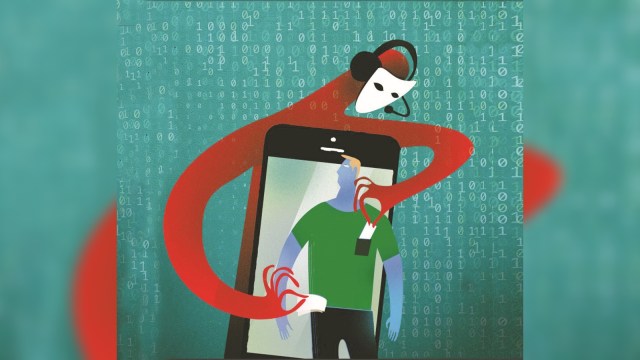‘Digital arrests’ alone cost Chandigarh Rs 10.37 crore: Police records
Cyber Crime Police secures Rs 71.96 lakh by freezing suspicious transactions
 With 3,106 finance-related complaints and 1,755 other cyber offences, the data underscores a broadening spectrum of online crime.
With 3,106 finance-related complaints and 1,755 other cyber offences, the data underscores a broadening spectrum of online crime.
From “digital arrests” to “fake investment schemes and even sextortion rackets”, cybercriminals have drained Rs 31.62 crore from Chandigarh residents in the first eight months of 2025.
The Cyber Crime Police, however, has said that they managed to secure Rs 71.96 lakh by freezing suspicious transactions, but the staggering losses point to a troubling reality — criminals are adapting faster than enforcement, and citizens remain dangerously exposed.
Digital arrests: Rs 10.37 crore lost
One scam towers above the rest in both scale and speed. “Digital arrests” — this alone has cost the city Rs 10.37 crore this year. As per recent reports, the so-called “digital arrest” scams typically involved impersonation of officials from the CBI, ED, NCB, or even the judiciary. Fraudsters often used WhatsApp or video calls to convince victims they are under legal scrutiny, then coerce them into transferring money to “safe government accounts” to avoid arrest or legal action. The deception is deepened by forged documents and fake courtroom settings to psychologically corner victims — usually elderly individuals living alone or retired government servants.
DSP (Cyber Crime), Chandigarh Police, A Venkatesh said, “Digital arrest scams are a form of impersonation fraud in which cybercriminals pose as police or government officials and threaten victims with fake arrest warrants to extort money. The psychological tactics employed — such as prolonged intimidation, fake court summons, and staged digital ‘hearings’ — tend to target senior citizens more effectively, though younger individuals can also fall victim. Often victims are too frightened to share their experience with family or to question the authenticity of the threats. Anyone trapped in such a scam should immediately inform their family and approach the local police for help.”
Over 4,800 cybercrime complaints
While cybercrime is fast becoming Chandigarh’s biggest law-and-order challenge, 4,861 complaints registered up to August 2025, police data shows. Bank-related frauds, online financial scams, and social media-linked crime complaints together form the bulk of cases, reflecting how fraudsters are exploiting both technology and human vulnerabilities.
Bank and financial frauds dominate
Bank-related frauds accounted for more than 2,900 complaints this year. These include 405 debit/credit card fraud cases, 365 frauds through fake transaction or Rapido messages, and 403 vishing calls where victims were tricked into sharing PINs, UPI, or KYC details.
A striking figure is the 1,357 cases of fraudulent transactions through remote access apps — where scammers convince victims to install apps giving them control of phones and banking apps. Digital arrest scams, where callers impersonate officials to extort money, added 155 cases, while investment and cryptocurrency frauds stood at 299.
More than 1,500 online scams
The city also saw a surge in online financial scam complaints beyond banks. These include 357 loan fraud cases, 313 OLX and e-commerce frauds, 304 task-based frauds, and 275 job, visa, and lottery scams. Fake customer care numbers on Google contributed 209 complaints while insurance and pension-related scams numbered 36.
Social media complaints — stalking and sextortion
Social media misuse has also been rampant. Police received 177 harassment and stalking complaints, 195 fake profile or impersonation cases, and 199 incidents of threatening or blackmail through messages and video calls. Hacking and unauthorised access were reported in 162 cases, while data theft and ransomware attacks contributed 85.
Sextortion — where victims are trapped into sharing intimate visuals and are later blackmailed — was reported in 34 cases, though police warn many go unreported due to stigma.
With 3,106 finance-related complaints and 1,755 other cyber offences, the data underscores a broadening spectrum of online crime.
Cybercrime files 2025
Rs 31.62 crore lost in 8 months
Rs 71.96 lakh prevented by freezing accounts
Rs 10.37 crore lost to digital arrests
4861 cybercrime complaints







